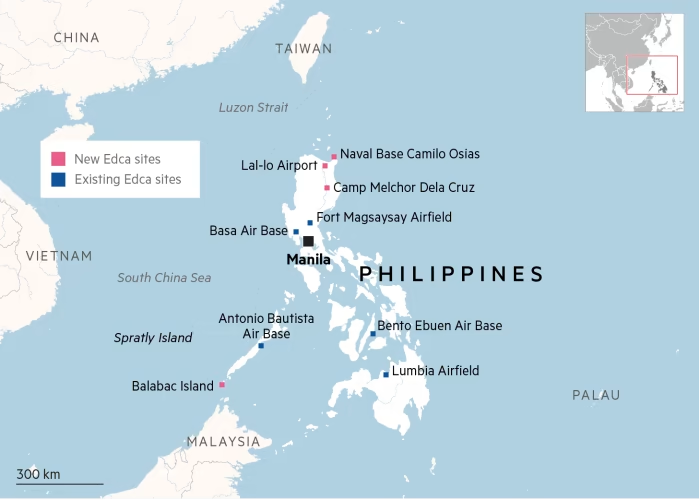Already a subscriber? Make sure to log into your account before viewing this content. You can access your account by hitting the “login” button on the top right corner. Still unable to see the content after signing in? Make sure your card on file is up-to-date.
The United States has officially strengthened its military alliance with the Philippines by reaching a new agreement that enables the sharing of classified intelligence and advanced technology.
What’s the deal: Yesterday, Defense Secretary Lloyd Austin and his Philippine counterpart Gilberto Teodoro signed the General Security of Military Information Agreement (GSOMIA), a legally binding pact that facilitates the secure exchange of classified military intelligence and technology between the two nations. The agreement grants the Philippines access to advanced US weapons systems, satellite and drone surveillance, and high-level intelligence, which had previously been restricted.

Digging deeper: Besides this intelligence-sharing framework, the US has already secured access to multiple Philippine military bases under a previous agreement, including four new sites granted in 2023 (some locations strategically positioned near the South China Sea and Taiwan). These developments provide the US with a forward-deployed position to monitor and respond to regional threats. However, this expanded presence has angered China, which views the increasing US-Philippine military cooperation as a national security threat.

In a brief statement, US Defense Secretary Lloyd Austin said the US was “committed to deepening our alliance, strengthening regional security, and upholding our shared values in the Indo-Pacific.”
China reacts: In a statement, Chinese Foreign Ministry spokesman Lin Jian criticized the announcement, saying, “No military agreement, or defense and security cooperation, in whatever form, should target any third party or harm the interests of any third party. Nor should it undermine regional peace or exacerbate regional tensions.”
This all comes as China and the Philippines have experienced escalating tensions over territorial disputes in the South China Sea, where Beijing claims nearly the entire area despite an international ruling invalidating its claims. China has deployed navy and coastguard vessels that have harassed Filipino ships, blocked access to disputed reefs and islands, and caused violent confrontations, leading to injuries and damaged vessels.







